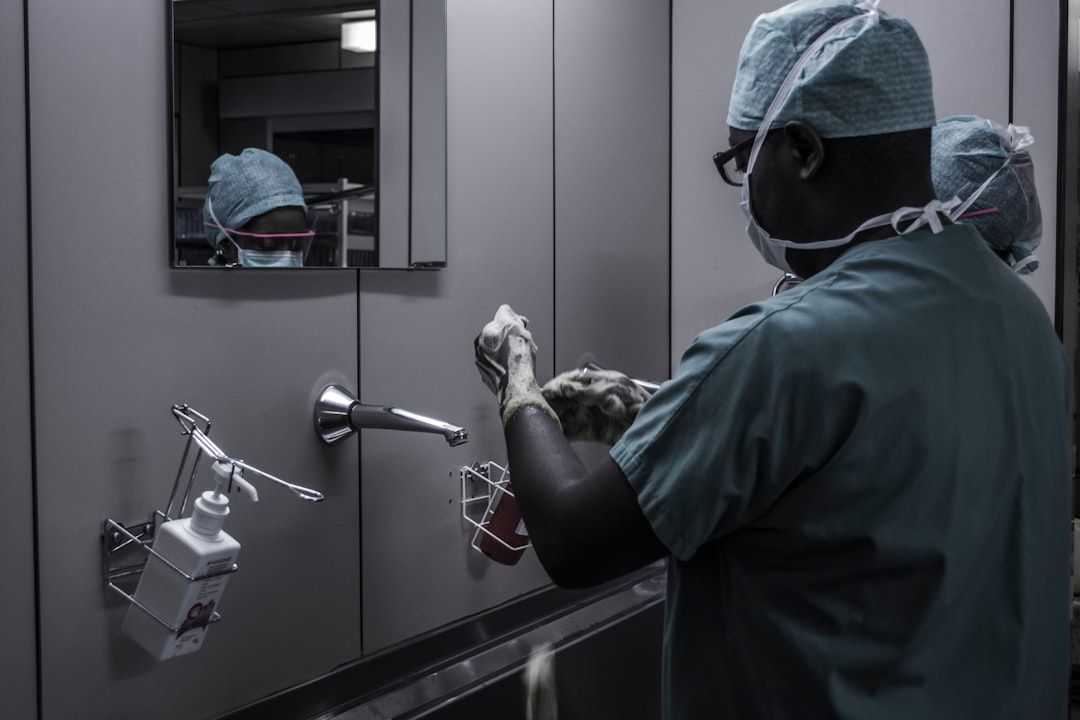
The Medical College Admission Test (MCAT) is a pivotal standardized examination designed primarily for prospective medical students in the United States, Canada, and a few other regions. This comprehensive test is administered to evaluate candidates on critical thinking, problem-solving abilities, written analysis, and a deep understanding of scientific concepts and principles. Initially introduced in 1928 and transitioning from paper-based to a computer-based format in 2007, the MCAT has undergone several transformations to better assess the readiness of applicants for the challenges of medical education. The current iteration of the MCAT, launched in April 2015, is structured to mirror the complexities and breadth of knowledge required in modern healthcare environments.
Structured into four main sections, the MCAT demands rigorous preparation and a strategic approach to mastering its content and timing. Each section—Chemical and Physical Foundations of Biological Systems; Critical Analysis and Reasoning Skills (CARS); Biological and Biochemical Foundations of Living Systems; and Psychological, Social, and Biological Foundations of Behavior—targets specific academic competencies with a mixture of passage-based and discrete questions. This format ensures that candidates are not only tested on their factual knowledge but also their ability to apply this knowledge in practical, often complex scenarios. The exam spans approximately 7.5 hours, challenging endurance as well as intellect, thus requiring thorough preparation and mental readiness from each candidate.

This section delves into the fundamental biological and biochemical concepts essential for understanding living systems. Topics covered include:
This section assesses knowledge in chemistry and physics as they apply to biological systems. Key areas include:
Candidates are tested on their understanding of how psychological, social, and biological factors influence behavior. This includes:
The CARS section evaluates comprehension, analysis, reasoning abilities through passages drawn from a variety of humanities and social sciences disciplines. It includes:
Each topic within these sections integrates scientific inquiry and reasoning skills with content knowledge, which is crucial for success in medical school.

The MCAT is a comprehensive, standardized test primarily used for medical school admissions in the USA, Canada, and a few other countries. It is divided into four main sections:
Each section is presented in a multiple-choice format with questions that include both passage-based and discrete questions. The entire exam spans approximately 7.5 hours including breaks.
The duration for each section is as follows:
Additional time is allotted for administrative procedures and breaks.
The MCAT does not have a traditional "passing" score. However, the scores range from 472 to 528, with the median score typically around 500. Admissions decisions are often based on how an applicant's score compares to those of other applicants, with higher scores generally being more favorable.
Candidates can take the MCAT up to three times in a single testing year, four times over two consecutive years, and seven times in a lifetime. It is crucial to plan retakes carefully considering these limits.
Understanding the structure, timing, and question types can significantly aid candidates in effectively preparing for the MCAT.

The MCAT exam is divided into four main sections:
Each section tests your knowledge and ability to apply concepts from various disciplines, emphasizing your critical thinking and problem-solving skills.
Certain topics appear more frequently on the MCAT. Prioritize studying these areas to maximize your score potential.
Discussing difficult concepts with peers can enhance understanding and provide motivational support.
Regularly check the AAMC website for any updates on the MCAT structure or content, ensuring your preparation aligns with the latest exam format.
Practicing MCAT exam questions extensively helps candidates build the stamina required for the actual test day. The MCAT is known for its rigorous and lengthy format, which can span approximately 7.5 hours including breaks. Regular practice with full-length exams conditions you to maintain focus and performance throughout this duration, making the real test feel more manageable.
Frequent exposure to practice questions allows you to become familiar with the MCAT’s unique question formats, such as passage-based and standalone questions. Understanding how questions are structured and what is expected in responses can significantly boost your confidence and efficiency on test day.
Engaging with practice questions helps pinpoint areas of weakness in your knowledge or test-taking strategies. This insight is crucial for making targeted improvements and ensuring that study time is spent optimally to address these gaps effectively.
MCAT questions often require more than just rote memorization; they test your ability to apply scientific knowledge in problem-solving scenarios. Practice questions train you to use theoretical principles in practical, often complex, situations, which is a key skill assessed by the MCAT.
Active engagement with material through practice questions aids in better retention and recall of information. This process, known as active recall, is more effective than passive study methods like reading or listening because it forces you to retrieve information from memory, strengthening neural connections related to the content.
Timed practice sessions help improve your ability to manage the limited time allotted for each section of the MCAT. By simulating real exam conditions, you learn how to pace yourself appropriately to ensure that you can answer all questions within the given time constraints.
Regular practice under conditions that mimic the actual exam can reduce anxiety and stress associated with the MCAT. By familiarizing yourself with the testing environment and types of questions you will encounter, you can approach test day with greater calmness and assurance.
Find exam practice questions on exammaker.ai at exammaker.ai.
The Association of American Medical Colleges (AAMC) provides a variety of practice materials that are crucial for authentic MCAT preparation. These include full-length exams, question packs, and the section bank which covers all the sections of the MCAT. These resources are designed to mirror the format and difficulty of the actual exam.
Many third-party companies offer comprehensive practice tests and question banks. Kaplan and Princeton Review are well-known for their close-to-real MCAT simulation tests. While these may come at a cost, they often include detailed explanations which are valuable for deepening your understanding.
UWorld is famous for its detailed explanations and challenging questions. Although primarily a subscription service, it offers a robust question bank that can help in reinforcing content knowledge and test-taking skills.
Though no longer partnered with AAMC, the existing free MCAT videos and practice questions by Khan Academy remain a valuable resource for students. They cover all topics tested on the MCAT and can be complemented with other study materials.
Platforms like Reddit have dedicated subreddits such as r/MCAT where students share resources, advice, and free or discounted practice materials. These forums can also be excellent for finding study partners and joining discussions that clarify difficult concepts.
Leverage flashcard apps like Anki or Quizlet to create custom decks tailored to areas where you need more practice. Anki uses spaced repetition software to help in long-term retention of information, whereas Quizlet offers versatility with different modes of learning including match, test, and write.
For personalized practice, platforms like exammaker.ai allow you to create custom tests from a large pool of questions. This can be particularly useful for focusing on weaker areas or simulating real test conditions with timed sessions.
The MCAT is a comprehensive and rigorous assessment designed to evaluate your understanding of scientific concepts as well as critical thinking and problem-solving skills. It consists of four main sections:
Each section requires focused study and a strategic approach to mastering the content.
Creating a tailored study plan that addresses your strengths and weaknesses is crucial. Allocate more time to areas that are challenging, while maintaining a review schedule for stronger areas.
The AAMC offers a range of official prep materials that are specifically designed to mirror the format and style of actual MCAT questions. These resources include practice tests, question packs, and the MCAT Official Prep Hub.
Taking regular timed practice tests helps build stamina and familiarizes you with the pacing of the actual exam. Analyze your performance critically to identify areas needing improvement.
Break down your overall preparation into manageable daily or weekly goals to ensure consistent progress without burnout.
Incorporate short breaks into study sessions to maintain high levels of concentration and avoid fatigue.
Ensure you understand all the test day procedures and what items you can bring into the testing center to avoid any last-minute stress.
Arrange how you will get to the testing center well in advance. Aim to arrive early to settle any nerves and adapt to your surroundings.
A balanced diet, regular exercise, and sufficient sleep are pivotal during your preparation period to keep your mind and body in optimal condition.
Engage in mindfulness practices such as meditation or yoga to manage stress levels effectively throughout your preparation journey.
By adhering to these strategies, you can enhance your readiness for the MCAT, ensuring that you approach the exam with confidence and clarity.

The MCAT exam assesses mastery in critical thinking, problem-solving, and knowledge of natural, behavioral, and social science concepts and principles prerequisite to the study of medicine. Below are five practice exam questions designed to mirror the style and rigor of the actual MCAT exam.
What is the primary role of the sodium-potassium pump in cellular activities?
A) Synthesis of ATP
B) Maintenance of cell volume
C) DNA replication
D) Protein synthesis
Correct Answer: B
Explanation: The sodium-potassium pump helps maintain cellular osmolarity and volume by actively transporting sodium out and potassium into the cell.
Which of the following statements best describes the interaction between light waves and transparent materials?
A) Light waves are absorbed by the material.
B) Light waves are completely reflected by the material.
C) Light waves pass through without being absorbed.
D) Light waves cause the material to emit its own light.
Correct Answer: C
Explanation: Transparent materials allow light to pass through them without significant absorption, reflecting minimal light waves.
Which theory of motivation would most likely explain behavior driven by the desire to fulfill one’s potential?
A) Drive Reduction Theory
B) Maslow’s Hierarchy of Needs
C) Incentive Theory
D) Arousal Theory
Correct Answer: B
Explanation: Maslow’s Hierarchy of Needs includes self-actualization at its peak, focusing on fulfilling personal potential as a motivator.
In a study on education techniques, what type of reasoning would be used to infer that active learning increases student engagement based on observed outcomes?
A) Deductive Reasoning
B) Inductive Reasoning
C) Abductive Reasoning
D) Analogical Reasoning
Correct Answer: B
Explanation: Inductive reasoning involves making generalizations based on specific observations, such as inferring broader educational impacts from specific outcomes.
If a new pharmaceutical drug shows a high affinity for serotonin receptors in nervous system tissues, what is a likely effect of this drug?
A) Decreased blood pressure
B) Altered mood or emotional states
C) Increased digestion rates
D) Enhanced visual acuity
Correct Answer: B
Explanation: Drugs that target serotonin receptors typically influence mood, emotions, or both, given serotonin’s role as a key neurotransmitter in regulating these aspects.
You are eligible to take the MCAT if you intend to apply to a health professions school. This includes:
International Students: No additional requirements; those with or pursuing an MBBS degree can register without special permission.
Special Permission: If not applying to a health professions school or if a current medical student in non-MBBS programs, special permission is required. Email your request to mcat@aamc.org.
Before taking the MCAT, you should have completed introductory courses in:
Concepts in research methods and statistics are also tested, typically covered in science labs and introductory psychology/sociology courses.
Note that voids and no-shows count toward these limits, and you can only be registered for one seat at a time.
During the MCAT, optional breaks of 10 or 30 minutes are allowed between sections. You can use this time to eat, drink, take medicine, or use the restroom. Time not used in one section or break does not carry over to the next.
Preparation for the MCAT is consistent regardless of whether you are applying to MD-granting or DO-granting medical schools. The exam tests knowledge in natural, social, and behavioral sciences along with critical analysis and reasoning skills crucial for success in medical school.